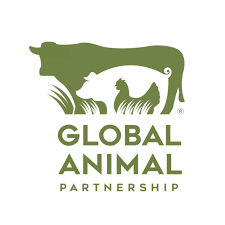Budget (2020): $1.4 million
Headquarters: Austin, TX
Executive Director: Vacant
Compensation: Unknown

Background and Goals
Global Animal Partnership offers a niche certification program for high-cost, low-in-supply animal protein. It’s the kind of food you would buy at Whole Foods–a.k.a. “Whole Paycheck”–that’s because GAP originated as a certification program for Whole Foods. Today, it is an independent group while still retaining Whole Foods executives on its board.
GAP’s certification requires production methods that have a significant negative impact on sustainability. Moreover, GAP’s ties to anti-meat activists raise questions about its long-term agenda.
Activist Board
As of March 2023, GAP’s board of directors has more animal rights activists than farmers.
Of its eight board members, three work for animal activist groups. Only two members are farmers. Of the remaining members, two work for Whole Foods and one is a consultant. GAP’s executive director between 2014 and 2022 also reports working for Whole Foods at the same time.
One of GAP’s board members, Ben Williamson, used to work for PETA. He has called for a federal tax on meat and has said, “Meat consumption is a known health hazard.”
Another GAP board member, Sara Shields, works for the anti-meat Humane Society International, which has compared meat to cigarettes: “Why were they offering beef at a climate change conference? It’s like cigarettes being handed out at a lung cancer meeting.”
GAP’s board may shift at any time. In 2017, more than half of the board members were animal activists–including a vegan activist as its chair.
GAP lists as “proud partners” three animal extremist groups that attack family farmers and promote vegetarian and vegan diets: The Humane Society of the United States, ASPCA, and Compassion in World Farming.
GAP’s first executive director was Miyun Park, who was a longtime vegan activist for the Humane Society of the United States and Compassion Over Killing (now called Animal Outlook).
Sustainability
GAP provides the backbone of the so-called “Better” Chicken Commitment.
Vegan activist groups are harassing food companies and demanding they join this Commitment. However, adoption of these GAP-based production restrictions would have a negative impact on the environment. Research shows that if just one-third of the chicken industry switched to the slow-growing chickens required under this program, the environmental impacts would be enormous:
- 1.5 billion more birds would need to be raised to meet consumer demand;
- 7.6 million more acres of land would be needed to grow feed crops;
- 28.5 billion pounds of additional manure would need to be managed;
- 670,000 tractor-trailers would be needed to haul everything.
For more information, read Issue Brief: “Better” Chicken Commitment and watch the video below.
Funding
According to GAP, about 60% of its revenue comes from certification and licensing fees. The remaining 40% comes from foundations and grants.
GAP has received significant funding from the Open Philanthropy Project. OPP also funds animal activist groups to attack food companies and push them towards only buying chicken certified under a GAP-derived program. Since 2016, Open Philanthropy has directed $3.5 million to GAP.
GAP stands to financially benefit from laws pushed by activist groups on GAP’s board. These laws ban common animal husbandry practices, as well as the retail sale of foods produced using these practices. As GAP notes in a recent annual report, laws such as California Proposition 12 and Massachusetts Question 3–which were lobbied for by GAP partners–help GAP by banning modern animal husbandry method. “[A]s regulations shift…GAP is, and has always been, ready,” says the organization. “GAP has prohibited [sic] the use of [sow maternity pens] since we launched in 2008.”
In effect, it’s GAP partners banning GAP’s competition.


